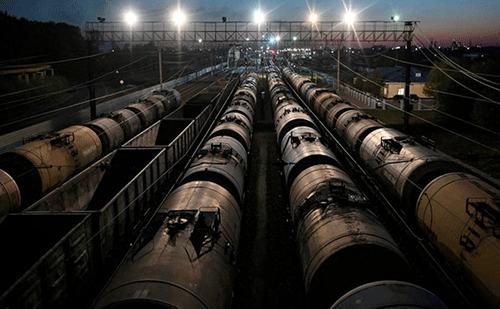Simon Kamati
Europe does not take the threat to its own energy security seriously, and seeks to agree on new sanctions on energy supplies from Russia.
Let us see if there is a risk for the European Union (EU) to destroy its own economy.
The last paragraph of the sixth package of sanctions caused serious controversy in the EU. It provides for a complete ban on crude oil from Russia. The European Commission apparently does not think that many countries are heavily dependent on energy supplies from the Russian Federation.
Re-elected Hungarian Prime Minister Viktor Orban said on 16 May that Budapest would not join the sanctions, which destroy the country’s energy security. Moreover, he considers all the restrictions imposed against Russia to be ineffective.
Foreign minister Peter Szijjarto said Budapest insists on excluding pipeline supplies from the sanctions’ package, because it could provoke a fuel price increase in Hungary by 55-60%.
Other countries, in particular Bulgaria, Slovakia and the Czech Republic, have asked for a delay in the embargo. As a result, the European Union cannot accept restrictions so far.
While the process has stalled, Germany has decided to stop buying Russian oil by the end of 2022, even if the EU does not take such measures.
At the same time, the head of the German Ministry of Economy Robert Habek admits a shortage of gasoline in the country due to a possible embargo. It is unclear how Germany and other states will replenish Russian energy resources.
The secretary general of the Organisation of the Petroleum Exporting Countries (OPEC), Mohammed Barkindo, warned that there are no free capacities in the world. Obviously, the export of more than seven million barrels of Russian oil products per day cannot come from anywhere.
Its loss due to European sanctions or voluntary restrictions will hit the global energy market definitely and every country will suffer again, including those in Asia and Africa.
Russian president Vladimir Putin also commented on the European countries’ refusal from Russian energy carriers.
He called such policy of foreign states economic suicide.
“Obviously, the possibility of increasing economic activity will leave Europe along with Russian energy resources to other regions of the world. Such an economic auto-da-fé is, of course, an internal affair of European countries. Russia must act pragmatically, proceeding with its own economic interests primarily.”
According to economists, the EU has only apocalyptic scenarios of pressure on Russia actually. The total ban on energy resources and a complete break in financial relations with Moscow will cause much more damage to European countries.
Europe’s new restrictions condemn not only itself, but also other regions of the world, including Africa, to rising prices for all groups of goods. Many businesses will become unprofitable and close. Accordingly, unemployment will rise. It means the population’s incomes falling. All these moments will increase the negative economic effect gradually.
European leaders, seeking to punish Russia for Ukraine, put their political interests above the interests of the population.
Russia urged Europeans to calm down, but they already seem to have moved to the stage where any attempt to lift sanctions will be perceived as a loss in the confrontation with Moscow, and for them this is unacceptable. Therefore, these people will go all the way.
Russia is forced to reorient supplies to other markets. The West forced Russia to find interests in China and India, where economies are growing at a rapid pace. For them, oil is blood for the body. Therefore, when one door closes, another opens automatically.



